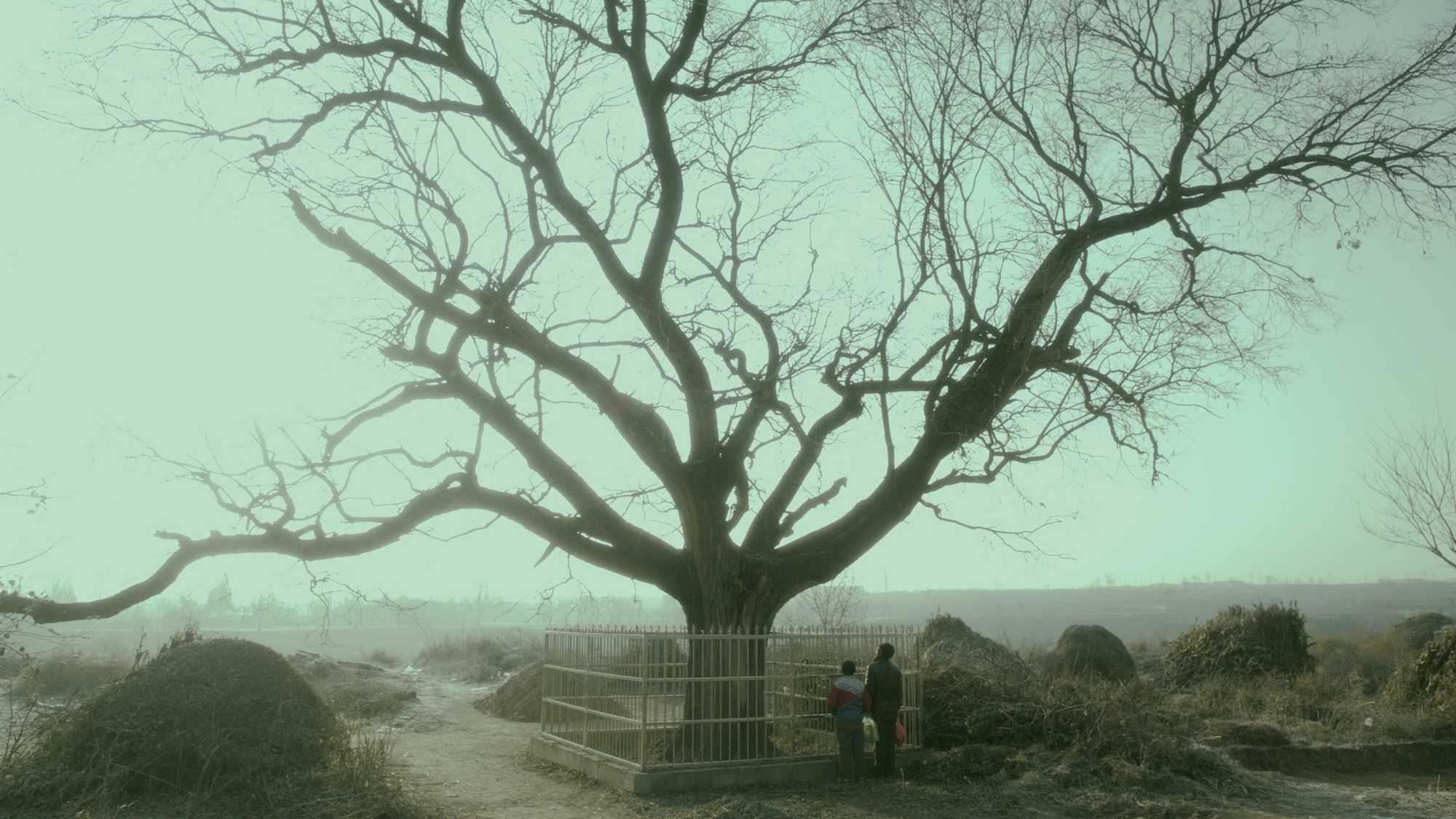Jul 29, 2016 Film & TV
Why don’t we walk out of more films? I am not asking this glibly, I’m really curious. Is it the sunk costs fallacy? – the one that goes, “If we walk away from this failed project, everything we’ve lost on it will be, you know… lost“? The relevance of the question for film festival viewing is that this is the time of year to take risks on things that look unusual and interesting. There’s no point rolling the dice and expecting a six every time; risks are risky. If you have an ingrained habit of gritting your teeth and staying in your seat right to the end of the thing you’re hating, then it becomes harder to swing for the fences while making your film selections. Maybe walk-outs are part of what let the festival work the way it’s meant to. And no, this is not an academic discussion. I’ve seen two films in the past couple of days which were very clearly not going to work for all audiences. One has shot instantly to the upper reaches of my highlights list. One defeated me utterly. It is absolutely the festival’s job to make sure people have the chance to see both.

Personal Shopper. Oh my word, how I love this film. Olivier Assayas and Kristen Stewart, writer-director and co-star of Clouds of Sils Maria, one of my very favourite films of 2015, reteam for a new project which is superficially similar (Stewart, again, plays a personal assistant to a major celebrity while touring through gorgeous bits of Europe), wildly different in substance, and almost on a par to the previous film in quality. Only almost? That’s complicated to get into; and in fact this is a difficult film to say much at all about. On the one hand, I want you to watch it. (It’s so good.) On the other hand, I want you reasonably forewarned. (It’s a film that sets out to mess with your mind, and only a subset of the Clouds audience will find that as delightful as I did.) And on the third hand, and believe me this is a film that requires at least three hands, it’s best viewed with minimal advance knowledge.
Oh my word, how I love this film.
I shall keep this as abstract as possible: Assayas uses all the tools at his disposal, and he uses them with a sharp, provocative intelligence. If a scene happens to feature a brief moment where a character walking towards the camera passes a full length mirror, with the effect that she’s suddenly doubled, and seems to be walking away from us as well as towards us, that will not be accidental, and its meaning will matter, and will take some thought to tease out, because it will be intertwined with other tendrils of symbolism from all corners of the film. While you’re thinking it through, more things requiring thought will have happened. The story is taut, twisty, in places electric, and — no. I shall actually stop there, you know enough now. I loved it, you may not. At the end, there was enthusiastic clapping from I would say about seven of the largish audience, though it was hard for me to be sure because the loudest clapping was coming from me; there was also disgruntled muttering from at least twice that many. Most people seemed to be somewhere in between. No one had walked out, though I hear a few did at an earlier screening. Good for them: they paid the festival honest money for the chance to see if the film was for them, it wasn’t, they got on with their lives. Roll the damn dice.
Oh, but this has to be said: Kristen Stewart. She’s so good in this. She’s in nearly every shot, and she’s riveting. If she and Assayas want to make a film a year together from now til forever, I’ll watch every one of them.

And then there’s Sixty Six. “I can say without a shadow of a doubt”, said the guy in front of me when I asked him what he thought after the credits had finished, “that that was the worst movie I’ve seen in my entire life.” He rolled the sentence out with relish, like the pronouncement of a hanging judge: he had pondered, he had decided, the decision brooked no appeal. I have seen films I liked far less, but then I see a lot of films. The starting audience was about 15 people and six of them, the ushers told me, walked out. “One of the finest cinematic achievements of the year”, said Manohla Dargis in The New York Times.
I am not generally in much agreement with Dargis, even when we both like the same film. But here’s the odd thing: I’m not certain she’s wrong on this one. I’ve been trying to make the case in these blogs for critical relativism — for discriminating between the valid views you don’t happen to share, and the failed-to-understand-the-film ones you need to fight with fire and blood.
This is a hard film and possibly a terrible one; I don’t know, because I failed to understand it.
Sixty Six is allusive, elusive, and as complicated an artifact as I’ve met on a cinema screen. It uses stop-motion animation to create jerky collages from old comics and magazines, with a found-narrative soundtrack made up from a wild range of music and snippets of repurposed dialogue from old movies. It has 12 chapters, very loosely interconnected. I kept thinking I was about to feel my way into its visual code and start being able to follow its stories, and I never did. That’s a different statement from “there was no code” or “the code was broken”. This is a hard film and possibly a terrible one; I don’t know, because I failed to understand it. I can imagine someone with a faster lateral-thinking image processing capability and a wider range of pop cultural reference getting to grips with it and having a great time; or perhaps they’d understand it and come out with a definitive argument for its worthlessness. All I’ve got myself is, “Duh?” That’s an interesting experience to have if you’re seeing a lot of films, though probably a maddening one if you’re only able to see a few. Anyway. I salute the walk-outs. As much as the film intrigued me, spiritually I was with them.

Three other films to mention quickly. Life After Life is a very slow, very quiet little film about the ruin of the land, the loss of communities, and the possibility of rebirth: it’s from China, and there’s a clear subtextual comment on the country’s recent runaway industrialisation and its costs, though the main focus of the film is spiritual. It’s gorgeous to look at, in a very sere, parched visual register. Its quality of stillness – in the land, and in the actors – is the hardest thing to convey, and the thing I’ll remember most strongly.

Lo and Behold: Reveries of the Connected World is a surprisingly tame documentary, considering it’s from Werner Herzog. It’s a pleasant and easy watch, though. The less you know about internet culture, futurism, and the various debates about where technology may shortly take us, the more the film will have to offer you. Given that you’re reading this on a blog, the odds are pretty good that you already know more than Herzog’s going to tell you here — though the full meaning of the title came as a delightful surprise to me — in any case, listening to his distinctive voice is always a pleasure. There are a few moments, such as the extended close-ups of the solar surface during the discussion of what a big enough solar flare might do to our computer-dependent world some day, which gain an extraordary power on the big screen, no matter how many times you’ve seen similar images online or on TV.

And finally, Sand Storm. Devastatingly good. I have a resistence to films whose sole purpose seems to be to dramatise terrible things I already know about. This is not that. This is a film feeling its way deep into the misogyny of traditional Bedouin culture, and creating richly conceived characters who aren’t purely defined by it, but do have to live within it. A daughter pushes against her mother’s harsh and seemingly arbitrary rules: she has fallen in love, and she trusts her father to help her marry the man she wants, even though he’s from the wrong tribe. We know without question that this is not going to go smoothly. But there’s so much nuance and complexity to the way the two women interact with each other, and with the patriarch who has final say over both of them. Amazingly, the festival have managed to pair this with a short, Maman(s), which is both on a similar theme, and every bit as powerful.
More from David Larsen’s Film Festival blog:





